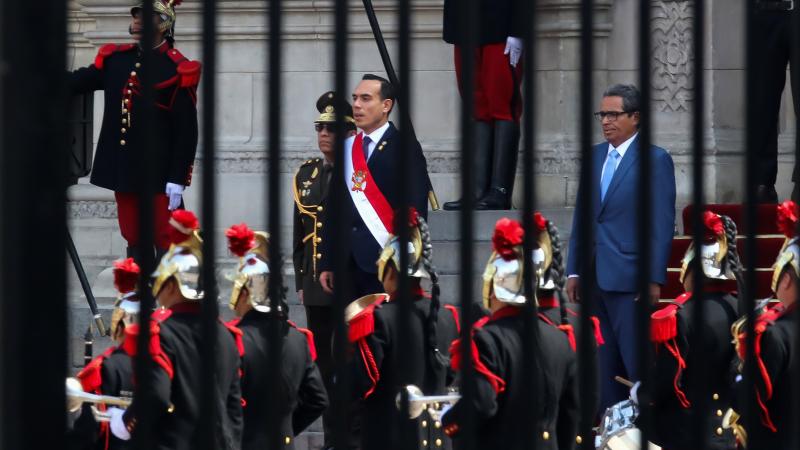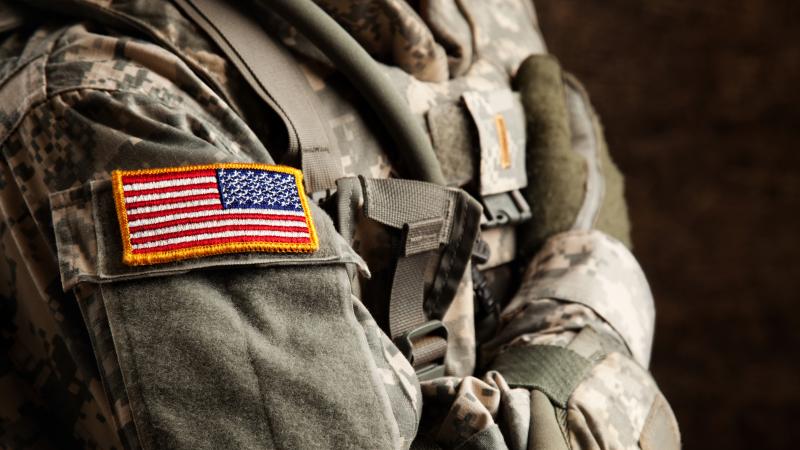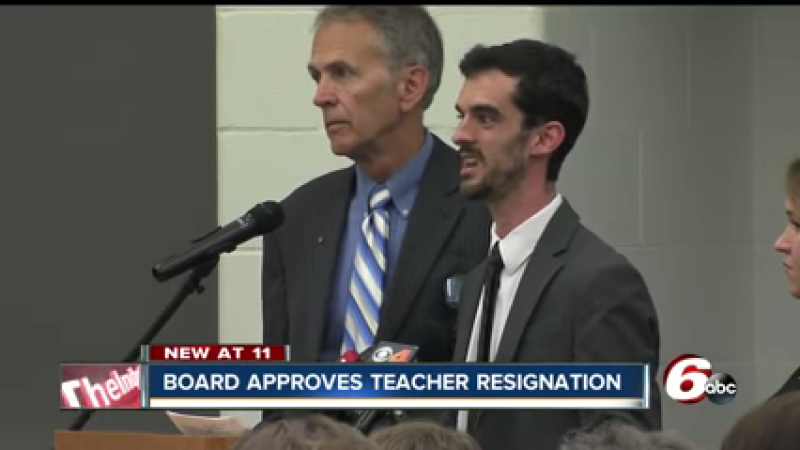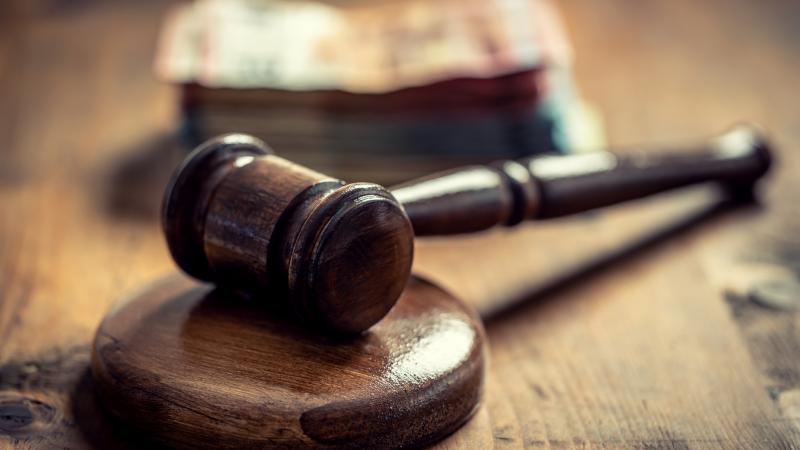Decades after U.S. helped El Salvador fight communism, tiny nation returns favor by taking illegals
Since Trump returned to the White House, Bukele has cooperated with American authorities to use his nation’s prison facilities to incarcerate deported illegal aliens, including some who originated from El Salvador and are members of the murderous MS-13 gang.
President Donald Trump’s Oval Office meeting with El Salvadoran President Nayib Bukele marked the latest development in the pair’s growing partnership on immigration as the American commander-in-chief has signaled that he views Bukele’s cleanup of the formerly crime-riddled nation as a blueprint.
The visit drew criticism from Trump's opponents but earned applause from supporters, many of whom view working with Bukele as a success story for dealing with crime and the drug cartels.
"It drives the media crazy"
“I love seeing President Trump invite a real friend to the Oval Office to have a discussion about standing up to the far left and to terrorists and to criminals who would like to destroy both of our countries,” said former National Security Council chief of staff Fred Fleitz on the John Solomon Reports podcast. “It just drives the media crazy to see that there are countries on this Earth who are very grateful that Donald Trump is president, that Joe Biden is not President any longer, and that made this press conference so, so enjoyable.”
Since Trump returned to the White House, Bukele has allowed the American authorities to use his nation’s prison facilities to incarcerate deported illegal aliens, including some from his own nation. Secretary of State Marco Rubio confirmed that more than 250 had been sent to El Salvador by mid-March. Bukele has stated that the modest fee his nation charges, while insignificant to the U.S., would render his prison system solvent.
The Monday Oval Office meeting saw the pair reiterate their support for one another in their efforts to secure the region, with Bukele saying “we're very eager to help. We know that you have a crime problem, a terrorism problem, that you need help with. And we're a small country, but if we can help, we can do it.”
The development marks a reversal of the 1980s situation in which the Reagan administration worked to bolster El Salvador in its fight against communist guerrillas.
The Bukele blueprint
El Salvador famously boasted some of the highest crime rates in the Western hemisphere before Bukele launched a major crackdown on gang operations in the country that led to a precipitous drop in the murder rate.
In 2015, El Salvador boasted a murder rate of 103 per 100,000 inhabitants. By 2024, that figure had fallen to 1.9 per 100,000, marking the lowest figure of all Latin American nations. El Salvador has a population of roughly 6.3 million.
“And we actually turned the murder capital of the world, that was what the journalists called it, right?” Bukele told Trump during the meeting. “And, you know, if they sometimes say that we imprisoned thousands, I like to say that we actually liberated millions.”
Bukele's effort has faced international scrutiny over the mass incarceration of suspected gang members, largely about due process concerns, though he was overwhelmingly reelected to a second term. In 2024, he earned 84.7% of the vote, while his party won 54 of 60 legislative seats. Allied parties won an additional three.
Paying for prisoners' incarceration
Thus far, much of the partnership between El Salvador and the United States has focused on the detention of convicted criminals in the former nation’s facilities, a development that has allowed Washington to circumvent some of the legal issues over deported aliens.
El Salvadoran prisons have been at the center of a legal battle over the deportation of El Salvadoran citizen Kilmar Abrego Garcia by the Trump administration. Despite a legal determination that he was a member of MS-13, Abrego Garcia was granted an order by a district court judge preventing his deportation but was removed anyway.
MS-13, the common name for Mara Salvatrucha, was designated a "terrorist organization" by then-President Obama's Department of Justice in 2009. The FBI has said "They perpetrate violence—from assaults to homicides, using firearms, machetes, or blunt objects—to intimidate rival gangs, law enforcement, and the general public."
The Congressional Research Service reported as far back as 2009 that MS-13 was connected to unaccompanied alien children (UAC) arriving in the United States, and suggested that MS-13's presence in Central America could continue to drive unauthorized migration into the United States by those seeking to escape the gang and its violence. The report also raised concerns that MS-13 is exploiting the U.S. Southwest border by bringing young gang members from Central America to the United States and recruits some of the vulnerable UAC to join the gang's ranks once in the United States.
In one gruesome killing spree on New York's Long Island in 2017, The Independent reported that four people were "hacked to death" by MS-13 members.
What the Supreme Court ruling really said
Notably, White House deputy chief of staff Stephen Miller highlighted that the United States lacked the authority to demand that a nation hand over one of its own citizens in its custody. He further clarified that the Supreme Court’s recent 9-0 ruling that the administration must “facilitate” Abrego Garcia’s return left room for his deportation a second time.
“The ruling solely stated that if this individual, at El Salvador's sole discretion, was sent back to our country, that we could deport him a second time. Well, no version of this legally ends up with him ever living here because he is a citizen of El Salvador,” Miller said.
“That is the president of El Salvador. Your questions about the court can only be directed to him,” Miller said, pointing to Bukele.
Bukele on Monday declined to return Garcia, asking rhetorically, "How can I smuggle a terror[ist] to the United States? I don't have the power to return him to the United States," Bukele told a reporter during the Oval Office meeting.
Moving forward
During the meeting, Bukele pointed to the daunting task that Trump faced of emulating his successes in the United States and insisted that such a development required the resolve to imprison many people.
“In fact, Mr. President, you have 350 million people to liberate,” he told Trump. "But to liberate 350 million people, you have to imprison some. That's the way it works, right? You cannot just free the criminals and think crime is going to go down magically. You have to imprison them.”
“So you can liberate 350 million Americans that are asking for the end of crime and the end of terrorists. Many can be done. I mean, you're doing it already, and I'm sure that people have seen the change in the streets,” he added. “A long way to go because you're just initiating your second term.”
The passage of the Laken Riley Act mandated the detention of illegal aliens for a wide array of offenses, providing legal standing to take illegal aliens off the streets. Deporting and imprisoning criminals, however, represents only part of Trump’s efforts and deportation stands as the most challenging obstacle to his plans.
But with Trump hoping to deport as many as 21 million illegal immigrants and invoking the 1798 Alien Enemies Act to expedite the process, he has faced a plethora of legal challenges obstructing the mass deportation effort. Thus far, Bukele’s assistance has only been of direct aid in dealing with the deportation of Abrego Garcia.
The Migration Policy Institute estimates that roughly 7% of illegal immigrants in the United States are from El Salvador, though its data uses the long-outdated figure of 11 million illegal aliens within the United States. U.S. Customs and Border Protection data revealed migrant encounters under President Joe Biden exceeded 10 million, with the vast majority of individuals admitted to the U.S. interior during that period.
Neither Trump nor Bukele significantly addressed the potential mass repatriation of illegal aliens from El Salvador during the meeting, though it remains a possibility as El Salvadorans account for at least 740,000 illegal aliens in the U.S., according to the Migration Policy Institute.
Support from Bukele for their repatriation, in combination with the reduction in local crime rates, however, could undercut asylum claims and make it easier for the administration to navigate the legal deportation channels.














